- Clone
- O94H5 (See other available formats)
- Regulatory Status
- RUO
- Other Names
- Peptidylarginine deiminase 4, Peptidyl Arginine Deiminase, Type IV, PADI5, HL-60 PAD, Protein-Arginine Deiminase Type-4, PAD4
- Isotype
- Mouse IgG2a
- Ave. Rating
- Submit a Review
- Product Citations
- publications
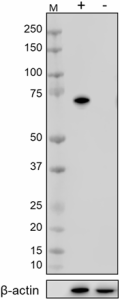
-

Whole cell extracts (15 µg protein) from HL-60 cells treated (+) or untreated (-) with 1.25% DMSO for 5 days were resolved on a 4-12% Bis-Tris gel, transferred to a nitrocellulose membrane and probed with 1.0 µg/mL of Purified anti-PADI4 Antibody (1:500 dilution) Antibody, clone O94H5, overnight at 4°C. Proteins were visualized by chemiluminescence detection using HRP Goat anti-mouse IgG Antibody (Cat. No. 405306) at a 1:3000 dilution. Direct-Blot™ HRP anti-β-actin Antibody (Cat. No. 643807) was used as a loading control at a 1:5000 dilution (lower). Lane M: Molecular Weight marker.
| Cat # | Size | Price | Quantity Check Availability | Save | ||
|---|---|---|---|---|---|---|
| 684202 | 100 µg | $288 | ||||
PADI4 is an enzyme that catalyzes peptidyl arginine to citrulline in the presence of Ca2+ ions. This reaction, known as citrullination, leads to the post-translational modification of proteins. PADI4 was initially cloned from the HL-60 cell line (human promyelocytic leukemia cells). It is mainly expressed in granulocytes, monocytes and CD34+ stem cells. PADI4 may play a role in granulocyte and macrophage development leading to inflammation and immune response. The PADI4 single-nucleotide polymorphism (SNP) and haplotypes were associated with rheumatoid arthritis susceptibility. Recently, PADI4 has also been found in a variety of malignant tumors and implies its potential roles in tumorigenesis.
Product DetailsProduct Details
- Verified Reactivity
- Human, Mouse
- Antibody Type
- Monoclonal
- Host Species
- Mouse
- Immunogen
- Full length recombinant protein of human PADI4 expressed in HEK293T.
- Formulation
- Phosphate-buffered solution, pH 7.2, containing 0.09% sodium azide.
- Preparation
- The antibody was purified by affinity chromatography.
- Concentration
- 0.5 mg/ml
- Storage & Handling
- The antibody solution should be stored undiluted between 2°C and 8°C.
- Application
-
WB - Quality tested
- Recommended Usage
-
Each lot of this antibody is quality control tested by Western blotting. For Western blotting, the suggested use of this reagent is 0.5 - 2.0 µg per ml. It is recommended that the reagent be titrated for optimal performance for each application.
- Product Citations
-
- RRID
-
AB_2572090 (BioLegend Cat. No. 684202)
Antigen Details
- Structure
- 663 amino acid with the predicted molecular weight of approximately 74kD.
- Distribution
-
PADI4 is mainly expressed in granulocytes, monocytes and CD34+ stem cells.
- Function
- PADI4 may play a role in granulocyte and macrophage development leading to inflammation and immune response.
- Interaction
- Histone H1, Histone H3, Histone H4, and SOX4.
- Cell Type
- Granulocytes, Hematopoietic stem and progenitors, Monocytes, Neutrophils
- Biology Area
- Cell Biology, Immunology, Innate Immunity
- Antigen References
-
1. Abd-Allah SH, et al. 2012. Joint Bone Spine 79:124.
2. Worthington J, et al. 2003. Trends Mol. Med. 9:405.
3. Song G, et al. 2016. Oncotarget. 7:3144-57.
4. Kolodziej S, et al. 2014. Nat. Commun. 5:3995.
5. Suzuki A, et al. 2003. Nat. Genet. 34:395.
6. Chang X, et al. 2010. Cancer Cell International 10:7. - Gene ID
- 23569 View all products for this Gene ID
- UniProt
- View information about PADI4 on UniProt.org
Related Pages & Pathways
Pages
Related FAQs
Other Formats
View All PADI4 Reagents Request Custom Conjugation| Description | Clone | Applications |
|---|---|---|
| Purified anti-PADI4 | O94H5 | WB |
Customers Also Purchased
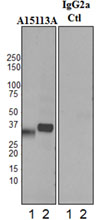
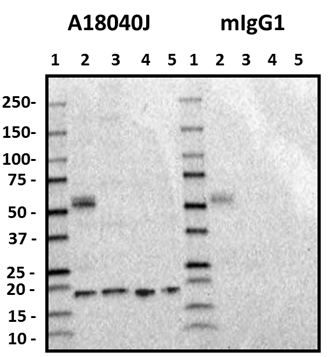
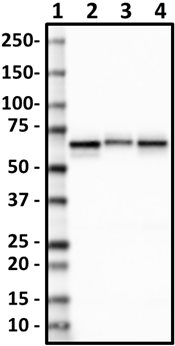
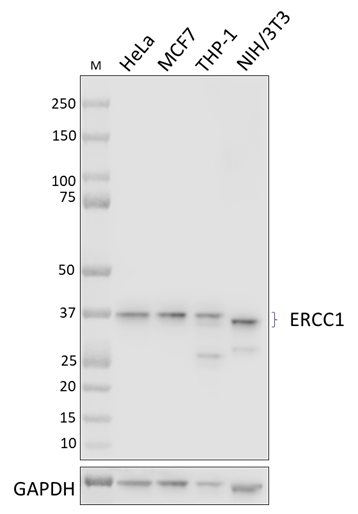
Compare Data Across All Formats
This data display is provided for general comparisons between formats.
Your actual data may vary due to variations in samples, target cells, instruments and their settings, staining conditions, and other factors.
If you need assistance with selecting the best format contact our expert technical support team.
-
Purified anti-PADI4
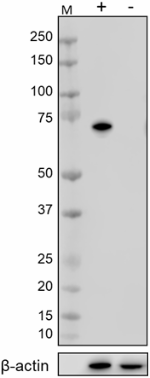
Whole cell extracts (15 µg protein) from HL-60 cells treated...
 Login/Register
Login/Register 







Follow Us